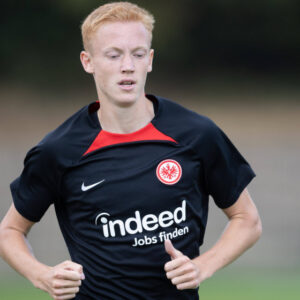
Arsenal Football Club, a beacon of soccer excellence, has seen its fair share of managerial talent over its storied history. Here’s a look at the top five managers who have not only steered the Gunners to glory but have also left an indelible mark on the club.
The Top 5 Greatest Managers of Arsenal:
1. Arsène Wenger
At the pinnacle of Arsenal’s managerial pantheon stands Arsène Wenger. When he arrived from Japan in 1996, Wenger brought with him a revolutionary approach to the game. His impact was immediate and profound; he transformed Arsenal’s diet, training regimes, and tactical setup. Under Wenger, Arsenal clinched three Premier League titles, including the unbeaten ‘Invincibles’ season of 2003-2004, and seven FA Cups. His vision for the game was not just about winning; it was about playing beautiful football, which earned him the moniker ‘The Professor’. His legacy is further cemented by his record-breaking 22-year tenure, the longest of any manager in Arsenal’s history.
2. Herbert Chapman
Moving back in time, Herbert Chapman’s influence on Arsenal during the 1920s and 1930s was monumental. Often credited with laying the foundation of modern football management, Chapman introduced innovations like numbered shirts and floodlights to the game. His tactical acumen led Arsenal to their first major trophies, clinching the FA Cup in 1930 and the First Division titles in 1931 and 1933. His strategic approach not only transformed Arsenal but also influenced football management globally. Chapman’s sudden death in 1934 was a significant loss, but his strategies continued to guide the club.
3. George Graham
George Graham took charge in the late 1980s, a time when Arsenal needed a renaissance. Known for his disciplined, defensive tactics, Graham turned the team into a trophy-winning machine. His era saw Arsenal lift the League Cup, the FA Cup in 1993, and most notably, the 1988-89 First Division title in dramatic fashion against Liverpool. Although his tenure ended controversially, Graham’s contribution to Arsenal’s trophy cabinet and his influence on young players like Tony Adams cannot be overstated.
4. Tom Whittaker
Tom Whittaker, who succeeded Chapman, might not have the same fame, but his impact was crucial. Taking over in 1947, he led Arsenal to two league titles in 1948 and 1953, and the FA Cup in 1950. Whittaker was pivotal in maintaining the high standards set by Chapman while adding his flair. His success was not just in trophies but in evolving the team’s style, making Arsenal a formidable force in English football.
5. Mikel Arteta
The most recent addition to this prestigious list, Mikel Arteta, has rejuvenated Arsenal with a blend of youthful exuberance and tactical discipline. Since his appointment in late 2019, Arteta has revitalized the squad, leading them to an FA Cup victory in his first season, thus ending a four-year trophy drought. His management style, focusing on possession and a high pressing game, has seen Arsenal return to the top four, challenging for the Premier League title in the 2022-2023 season. Arteta’s approach has not only been about tactical setups but also about fostering a culture of hard work and team unity.
Each of these managers has contributed uniquely to Arsenal’s rich tapestry, blending their personal philosophies with the club’s ethos. Their legacies are not just in the silverware but in the evolution of football tactics, player development, and the enduring spirit of competition. As Arsenal continues to write its history, these managers will forever be celebrated for the heights they took the club to, each in their revolutionary way.





